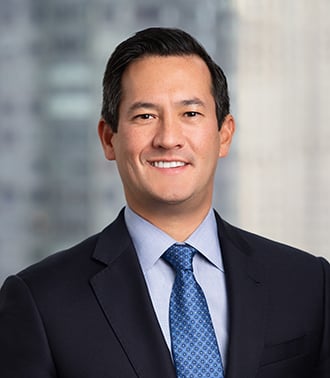DOJ Indicts Chinese National for Stealing Google LLC Trade Secrets Related to Artificial Intelligence Technology
On March 6, the Department of Justice (DOJ) unsealed an indictment that signals DOJ’s increased focus on enforcement actions related to artificial intelligence (AI) and other advanced U.S. technologies. DOJ’s action was coordinated by the Disruptive Technology Strike Force, an interagency law enforcement strike force co-led by DOJ and the Department of Commerce with an aim of, among others, “prevent[ing] U.S. critical technology from being acquired by authoritarian regimes and hostile nation-states.”
According to the DOJ press release and the indictment, a federal grand jury in the Northern District of California indicted Linwei Ding, aka Leon Ding, a Chinese national and resident of California, charging him with four counts of theft of AI-related trade secrets from Google LLC. Since 2019, Google had employed Ding as a software engineer to develop software deployed in its supercomputing data centers. The indictment alleges that Ding was granted access to Google’s confidential information related to the supercomputing data centers, including their hardware infrastructure and software platform and the AI models and applications they supported.
From May 2022 through May 2023, Ding allegedly sent over 500 confidential files from Google’s network to his personal Google Cloud account. To conceal the theft, Ding allegedly copied data from the Google network onto the Apple Notes application on his laptop. He then allegedly converted the Apple Notes into PDF files and uploaded them onto his personal Google Cloud account. This process helped Ding evade detection by Google’s data loss prevention systems. The information that Ding allegedly stole included technology that allows Google’s advanced supercomputing data centers to train and host large AI models. During his employment at Google, and unbeknownst to Google, Ding allegedly was also serving as the Chief Technology Officer for a competitor company in China and as the Chief Executive Officer of his own Chinese technology company.
While the indictment did not include any export controls-related charges, trade secret theft by a company’s employee also could result in export controls violations by the company itself — even if the employee acted against company policy. Given the increasing threat of potential theft of technology and increased government attention on AI and other advanced technologies, technology companies should review their existing controls and systems to ensure that they are reasonable and sufficient to guard against potential theft and unlawful exports. That review should include the company’s deemed export procedures and technology control plans for releasing source code and technology to foreign national employees. In addition, companies’ export controls compliance function should consider working with their corporate security or information technology (IT) function to review existing security and IT controls to prevent trade secrets theft that could lead to export controls violations.
For questions about this indictment or other export controls or sanctions matters, contact the authors or any of their colleagues in Arnold & Porter’s White Collar Defense & Investigations or Export Control & Sanctions practice groups.
© Arnold & Porter Kaye Scholer LLP 2024 All Rights Reserved. This blog post is intended to be a general summary of the law and does not constitute legal advice. You should consult with counsel to determine applicable legal requirements in a specific fact situation.






